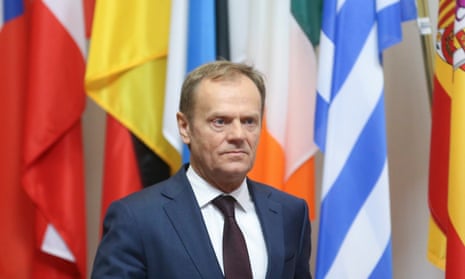The enlargement of the European Union to include countries formerly of the Warsaw Pact was an advance of democracy and the rule of law on a vast scale. That it happened peacefully on a continent whose history is dominated by national blood-feuding is all the more remarkable. The achievement is insufficiently cherished partly because it belongs to bureaucrats and politicians – heroism of the least glamorous kind.
Enlargement also made integration among EU states harder, a strategic objective of the UK in pushing for the admittance of central and eastern European neighbours. The Foreign Office judged that a wider, less cohesive union would be a shallower, looser one. For the same reason, advocates of a more federalising approach were warier of letting the ex-communist states into the club.
It is to Britain’s credit that it championed a process that spread prosperity and security. It is equally sad that diplomatic goodwill thus earned in, for example, Poland and Hungary, was squandered, first by Labour’s failure to nurture those relationships, then by David Cameron’s indulgence of rhetoric that vilifies migrating citizens of friendly countries as parasites. This neglect might matter less if the advance of liberal democracy was secure. The emergence of intolerant nationalistic leaders in Budapest and Warsaw suggests otherwise. Last week, the European commission formally condemned changes made by Poland’s ultra-conservative government to the country’s constitutional court, declaring the moves anti-democratic. The ruling Law and Justice party, which is hobbling the court’s capacity to function as a brake on executive power, dismissed the commission’s opinion as irrelevant.
In theory, the commission can escalate, asking EU leaders to impose fines or curtail Warsaw’s voting rights. But that would need a unanimous decision, which isn’t going to happen. Sanctions would be vetoed by, among others, Viktor Orbán, the Hungarian prime minister who first pioneered the model of suffocating domestic dissent that Poland is now following.
The commission knows it is on thin ice. Appointed officials telling elected governments how to be democratic is, to say the least, problematic. It is a challenge for all EU institutions, whose self-image as enlightened vanguards is not reflected in that fast-growing body of opinion in member state countries where they are seen as arrogant bullies. The tension is acute: the most aggressive Euroscepticism blends into ethnic chauvinism, which drives moderates to defend the EU by default. But defensive devil-you-know pro-Europeanism as the last refuge of technocrats sustains the nationalist-sceptical critique of an elite establishment, out of touch with the popular mood.
EU leaders do understand the problem. In a speech last week, Donald Tusk, European council president, spoke of the need to move on from the “utopian dreams” of the union’s founders – the vision of national boundaries dissolving. Efforts should be focused instead on cooperation to deal with immediate problems: eurozone architecture and border security. The sentiment was sound, but the distinction between ideals of continental integration and pragmatic multilateralism is not easily drawn. The EU is experiencing a crisis of solidarity that makes it hard for national governments to persuade their electorates to make any compromises in the name of continental progress.
In the context of Britain’s referendum, the impasse over Poland and the tensions it represents could be exploited by the leave campaign. Why, the Brexiters ask, should the UK stay tethered to a dysfunctional project? The answer is that the UK has a role to play in restoring functionality to that project, whereas, should it fall apart, we would be passive victims of the ensuing chaos. There are many crisis scenarios for Europe in the coming years but none where it is feasible to imagine a British prime minister would rather watch from the sidelines than be in the room, shaping the outcome.
The UK brings a valuable perspective to EU affairs precisely because of its long history of ambivalence. Mr Tusk is right. The utopian phase is over, and whatever comes next will be more sustainable with input from Britain. Our engaged scepticism – wary of federalising excesses but not isolationist – is a healthy leavening factor in the mix, but only if we stay in the mix. Having pushed for EU enlargement to the east, Britain’s moral duty and its national interest both demand that we stay the course to manage the consequences.
